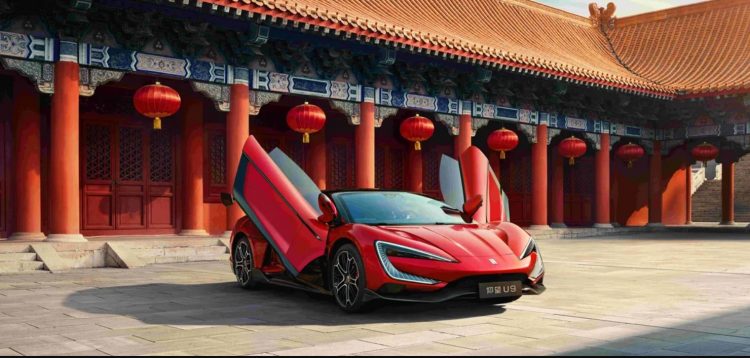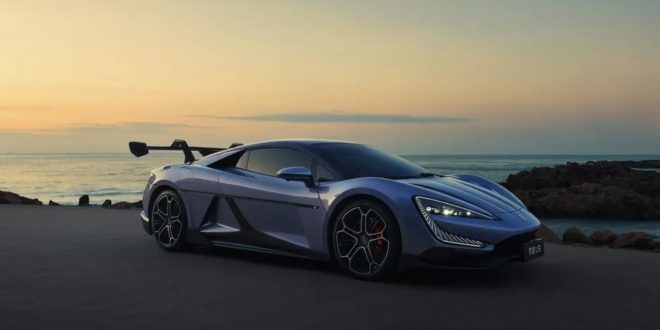BYD, the Chinese automaker, recently introduced its inaugural all-electric supercar, which can reach 0-100 kilometers (62 miles) per hour in 2.36 seconds. The vehicle can reach a top speed of 309.19 kilometers (218 miles) per hour, surpassing some Ferrari and Lamborghini models. It operates solely on electricity, eliminating the need for gas.
The vehicle, referred to as the U9 model, is set to launch as part of BYD’s premium sub-brand known as YANGWANG. If all goes as planned, deliveries are set to commence in the summer of 2024 at a cost of 1.68 million yuan (approximately $233,400).
The Yangwang U9 is equipped with 1,300 horsepower and a maximum torque of 1,680 Newton-meters. The vehicle includes a cabin constructed from carbon fiber, a durable yet lightweight material commonly found in supercars.
Given the substantial power, overheating may pose a concern for an electric motor. BYD has enhanced the U9’s thermal management system to improve its resistance to high temperatures. The product incorporates 12 aerodynamic features aimed at improving heat dissipation and minimizing drag.

The electric vehicle market in China is experiencing significant growth. In 2022, the country represented 35% of worldwide electric vehicle exports, with its success growing further in 2023.
Established in 1995 as a manufacturer of rechargeable batteries, BYD has emerged as a significant player in the industry. In the fourth quarter of 2023, they successfully outsold Tesla, the former leading electric vehicle manufacturer worldwide.
Although a significant portion of their sales occur in China, BYD and other Chinese manufacturers aim to broaden their global presence despite facing international trade limitations. The US is considering increasing tariffs on certain Chinese products, such as electric vehicles, while the European Union (EU) has initiated an investigation into Chinese-manufactured electric cars to determine if they have received unauthorized subsidies. Carmakers in Western countries may be beginning to experience pressure.
Chinese car manufacturers refute the EU’s accusations, attributing their achievements to their distinctive technology and management approach rather than illicit state subsidies.
Our achievement is attributed to our distinctive technology rather than the subsidy. Michael Shu, the European president of BYD, stated to the Financial Times this week that management efficiency is high.
We have a competitive advantage due to our early and extensive investment in this technology compared to our rivals. Shu clarified that the reason was not due to the subsidy.
 Tech Gadget Central Latest Tech News and Reviews
Tech Gadget Central Latest Tech News and Reviews




